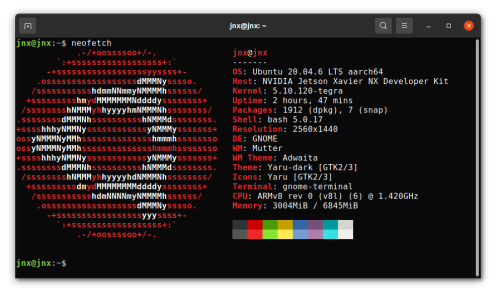
As I’ve been clearing out the collected detritus of a lifetime around my house, I’ve also been collecting and reorganizing all my various computers. One of those computers is the nVidia Jetson Xavier NX Developer kit.
I purchased it in May 2020 from Amazon for the $300 initial asking price. I figured that if I were going to be locked in due to the pandemic I’d spend my time doing something useful. The Xavier was advertised as an entrée into edge-of-the-network machine learning. I also purchased a third-party enclosure to wrap it up and protect it a little better than leaving the bare board exposed to the world. My first post about the kit was May 2020 (see below), while my last post was December 2021. Along the way I brought up various versions of Python, Emacs, and even got Visual Studio code to work. I also complained about the OS being based on Ubuntu 18.04. I didn’t do nearly as much as I had planned to do, what with all my time being sucked into a project that started in July of 2020.
When I powered the Xavier back up I re-acquainted myself with the state I’d left in in a year-and-a-half ago. All the hacks and patches, all the special Python 3.x builds, all of it. I noted that Ubuntu 18 look-and-feel. I then checked the nVidia on-line references and discovered that the Xavier had been end-of-lifed and a substitute, the Orin, was being sold in its place. I don’t know what’s special about the Orin, but whatever it is nVidia sells it for twice what they sold the Xavier. That puts the Orin squarely outside my discretionary budget.
I also discovered that the the latest version of JetPack, the software stack for the Xavier, had updated the Ubuntu portion to 20.04. I tried to upgrade the version of Ubuntu already on the Xavier from 18.04 to 20.04, but that ended in a hot mess. I downloaded a new image and started over again. You can see what I’m running via neofetch shown above.
So far things are better, I guess. What’s taken a hit is my enthusiasm for this device. That hit is due in part to the fact I can’t get official Visual Studio Code to run, and I don’t want to live inside of Emacs on this little device. VSCode really is needed on this tiny machine.
Time to wrap this post up.



You must be logged in to post a comment.